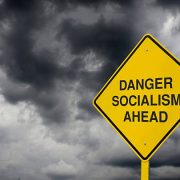Some are fighting an uphill battle to restore the word “liberalism” to “true” (that is: classical) liberals. Labeling in politics is always a complicated issue, and at the end of the day what really matters is how other people see you. In a sense, labeling someone, or even labeling yourself, is a “positional” effort: it is needed to put you in relation with others. You can use one word or another depending on how other people use them, and what really matters is the meaning _they_ attach to them.
For this reason, I find intriguing a proposal by Steve Davies, that in a recent piece masterfully argue for adopting the word “individualism”.
Using “classical liberal” is – Davies writes – problematic, as it is ‘essentially a historical term, referring to the ideas and personalities of a specific historical period (broadly the 1780s to the 1900s). The danger with using this as a label is that it implies you are advocating a kind of embalmed truth rather than a living intellectual tradition.’ At the same time, ‘simply using the term “liberal” without qualification is attractive, but there is a definite tradition of collectivist liberalism now and this means a constant need to explain how your own position is different from that, or a qualification of the core individualist perspective.’ The term “libertarian” has some problems too: for Davies, mainly that it is colored in such a way that it gives prominence to the economic side of liberalism at the expense of its cultural, or more broadly defined, political side. That is, “libertarian” would be very close to “free market” and, given the long standing association of free markets and the right, you could paradoxically end up with a “libertarian nationalism.” I think that is actually country-dependent. Davies is writing about the Anglo-sphere, whereas in Italy the problem is the opposite one: “libertarian” is a semi-substitute for libertine, with a strong emphasis on individual (civil) rights and little regard for the economic dimension of liberty.
What is the best label we can use then?
Davies’s answer will surprise many. ‘There was always another label available to’ Anglophone classical liberals ‘and for a long time they made enthusiastic use of it. This was the term “individualism” and the associated “individualist.”’
Individualism was a word that had undergone the change from being a term of opprobrium to one of positive identity. It had originally had connotations of selfishness and egoism but by the 1870s had been adopted by a number of radical liberals as a label for their views, on both sides of the Atlantic (and, interestingly, particularly in France).
In the 1880s and 1890s there was a vigorous intellectual debate on both sides of the Atlantic between the self-defined individualists on one side and the self-defined “collectivists” (in the UK, Canada, and Europe) or “progressives” (in the U.S.) on the other. Subsequently the terms “individualist” and “individualism” remained the main labels used by advocates of the radical case for personal, individual liberty. This was true in the 1920s and even as late as the 1940s and early 1950s (Friedrich Hayek used the term for example and spoke of “those of us who adhere to the individualist position”).
Then quite suddenly, in the middle of the 1950s, all of this changed. People who had described themselves as individualists and identified with that label suddenly stopped using it (with a very few exceptions such as Frank Chodorow). Many adopted the label “conservative,” particularly in the U.S. Most however took to calling themselves classical liberals or libertarians (a word that had previously referred to communist anarchists of the Peter Kropotkin type). The term “individualist,” which had been used until then by both friends and critics, almost vanished.
I like that. In part for historical reasons: I have lots of sympathy for “Individualists” such as Herbert Spencer, Auberon Herbert, or Ernest Benn for that matter. In part because if there is something that is apparent, in “individualism”, is the word: individual. And the “individual” (the real, present, acting individual: not a future “new” man, suited to live in a happily transformed society) is exactly what we oppose to grand collective catchwords, such as nation, country, the working class, et cetera.













